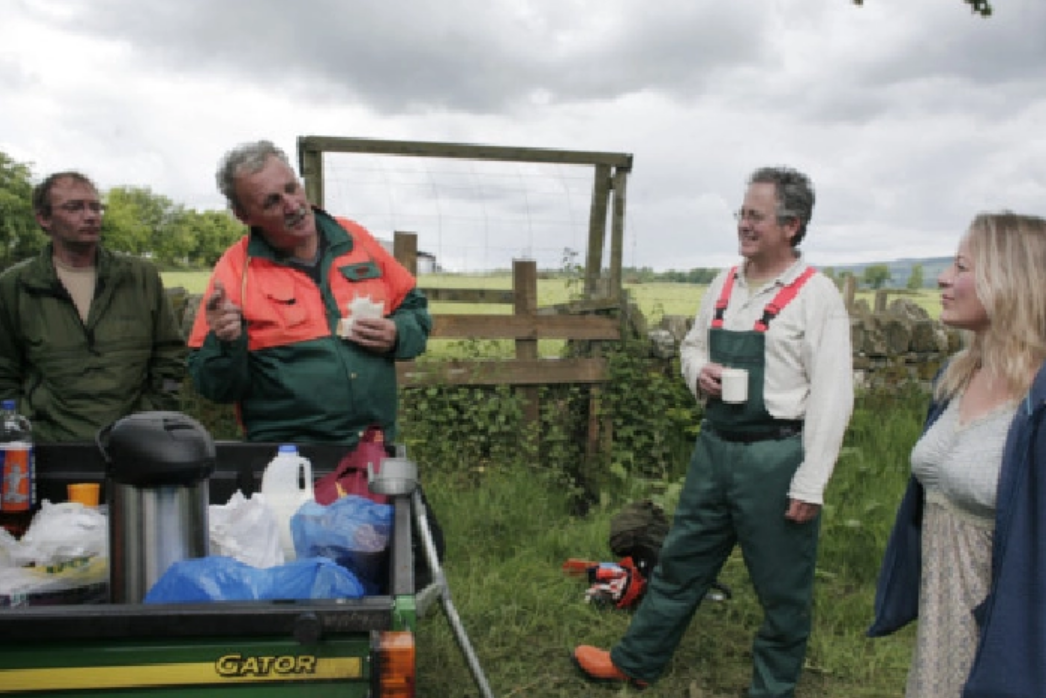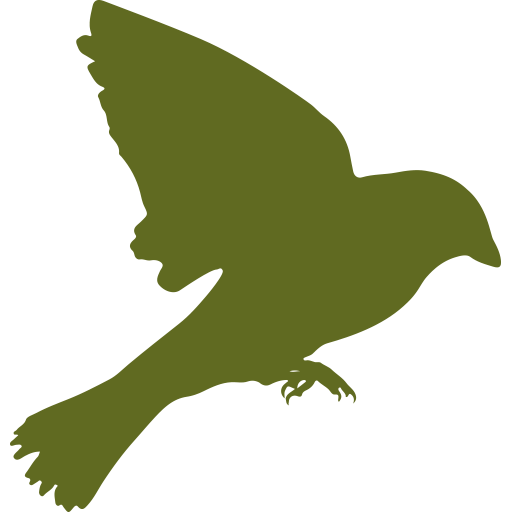A different battle: Living with post traumatic stress disorder
Stuart Press with fiancee Anne-Line Ussing having a break with left, Clark McNamee and Jim Plummer (trainer)
COMING BACK from a war zone, ex-soldiers have another battle on their hands – one with their own minds. Now one man who knows what it is like to face down the black dog is providing a sanctuary for those suffering post-traumatic stress disorder
During his darkest moments Stuart Press would stay awake for days on end to avoid having the ‘black dog’ visit him again. His fear of the black dog led to suicidal thoughts and to him drinking heavily. In a desperate search for peace of mind, he spent endless hours with psychiatrists, reliving war traumas that stalked his sanity.
Still Press was haunted, and eventually his marriage ended, with his wife and three children suffering too. “I think it would have been easier for my family at the time – and certainly for me – if I’d just come back in a box,” he says.
The former army officer is sitting on a log in a Fife wood, talking about post-traumatic stress disorder (PTSD), a severe anxiety condition triggered by trauma, which has affected him for nearly 20 years. Looking back, he says, the first signs of his illness surfaced after he returned from a military posting to Rwanda in 1994, where he bore witness to genocide when Hutu militias murdered some 800,000 Tutsis in just 100 days.
Horrors that remain with him include the knowledge of the quickest way to murder someone with a machete. As he speaks, Press stands to demonstrate what he witnessed using his hands in a cutting motion for effect. “It was a ruthless and systematic massacre, one that was very well co-ordinated.
“It was easily on a par with what the Nazis did during the Second World War. Babies, women, children, men, old people – it didn’t matter – they were all hacked down with machetes. It was a massacre with hardly a shot fired, carried out in a ritualistic fashion which the Hutus used to demoralise their enemies,” Press says.
The 52-year-old sits down again and stares across a field into the distance before recalling more memories from a military career with the Australian Defence Force (ADF) of almost 20 years. His time in Rwanda followed a spell in Somalia in 1993, where he was deployed to assist the United Nations Operations in Somalia (Unisom) as the country faced anarchy. He describes the country as “lawless”, a murderous place where armed militias fought each other and where ordinary people were literally starving to death while their brutish countrymen pillaged emergency aid from UN convoys.
Press pauses briefly. Kosovo in 2000 was “another nightmare”, and he talks about encountering shoeless refugee children wearing only vests in winter temperatures of minus 30C, but what struck him was that, despite their atrocious circumstances, many still acted as if they had not a care in the world. “It’s amazing how resilient children can be,” he says, a smile lighting his face for the first time.
As we talk, a couple pass by with their dog and the sound of birdsong fills the muggy air, the tranquillity of Falkland on a summer’s day a world far removed from the purgatory Press is digging up from his mind. He speaks slowly and deliberately with a slight Australian drawl, and explains that he was first diagnosed as suffering from PTSD during his time in the Balkans. “I was very suicidal. I knew something was not right but had never heard of PTSD then,” he says.
Nearly 12 years later, Press has come a long way and now better understands his condition, which is caused by highly stressful and/or frightening events. Those affected suffer nightmares and flashbacks, symptoms Press has faced and refers to as the black dog.
He has had to learn to cope with the disorder, and in doing so has discovered that nature can be therapeutic. As a result of his own experiences, he has chosen Fife as the location for a new project that aims to rehabilitate war veterans suffering similar problems.
Earlier, over coffee, his fiancée had explained how the couple ended up living in a small village in the Kingdom of Fife. Anne-Line Ussing is a Danish journalist whom Press met in 2001 when they were working in South Africa. After falling in love, they decided to leave city life and buy an organic farm on an island in southern Denmark called Strynoe.
Working outside in the fresh air and rearing sheep and pigs proved a godsend, and over the next few years Press came to terms with his medical condition and life improved for the couple. They now have three children, aged two, seven and nine. Realising how positive farming had been, they wanted to help others and came up with the idea of building nature retreats for war veterans.
The new venture, on Falkland Estate, will be the first in what they hope will eventually be a network of sanctuaries across Scotland. The scheme is in collaboration with Falkland Stewards (based at the Falkland Centre for Stewardship), with funding from the National Lottery’s Awards for All scheme – the grant coming after Ussing was invited to meet with Prince Charles, patron of the military charity Combat Stress. She has also been in talks with Scottish Land and Estates about rolling the project out.
The veterans will be introduced to conservation work and invited to join a network of volunteers who go on nature preservation missions, where they will work on specific projects under the supervision of a ranger. “A mission could be to plant five hectares of woodland in two weeks, or to remove invasive species from a given area,” Ussing explains.
An introductory course will train people to use chainsaws – the first batch of ex-soldiers has just completed the course and is now in the process of constructing the first woodland retreat.
Over a three-year period, Ussing hopes to run up to four such courses, involving a maximum of 20 people, followed by four to six projects that are yet to be decided. Her vision is to eventually expand the concept across the UK and to other countries if possible.
In the UK there are around five million war veterans, and Ussing says as many as 150,000 could be suffering from PTSD, adding that the benefits of engaging in farm and forest work were first introduced to veterans suffering from shell shock after the First World War. In recent years, similar projects have become popular in the US due to the rise in the number of traumatised veterans returning from Iraq and Afghanistan, many of whom have no support whatsoever.
Press says Ussing is his rock and that life without her would be unmanageable. He was born in Zambia to British parents, and after moving to Australia he joined the ADF in 1980 because at the time UK nationals were allowed to join the country’s army. After leaving the military in 1997 with five medals, he worked with the UN and spent seven more years in war zones, involved in humanitarian projects.
His focus now is solely on helping war veterans. “A lot of guys end up in trouble – are in jail or living on the streets. These are everyday guys, just like you and me, with families and loved ones. But everything is f***ing falling apart. They need somebody to grab their collar and say, ‘Right, let’s go and help you out.’ I mean, if it wasn’t for Anne-Line I’d be living in the bush in Australia somewhere now. That’s the only way I could deal with it [PTSD],” Press says.
He introduces me to one of the first ex-soldiers to become involved with the Falkland project. Archie McConnell is a 42-year-old Glaswegian who served as an infantryman in the Queen’s Own Highlanders, and he agreed to participate after Ussing visited him and other veterans who live in Scone.
McConnell joined the army in 1987, when he was 18 years old, and saw active service during the 1990-91 Gulf War in Iraq. He left through a personal voluntary release because of what he witnessed in February 1991 on the main road from Kuwait to Iraq, known as the Highway of Death. There, a convoy of vehicles carrying retreating Iraqis from Kuwait was attacked and destroyed by allied forces. “We sat and watched it all night. We couldn’t really see the road, just the explosions. It was a free-for-all. There was no need for it, put it that way. We could have put a roadblock up and stopped the whole f***ing lot of them. They would have surrendered.
“We were the first ones on the road and were basically told to get rid of the bodies before the press came. There were no weapons or nothing or f*** all. It wasn’t even an army, just normal guys going home. Ever since that, I said the army isn’t for me.”
He spent four days burying charred bodies. In his mind’s eye, he can still see desert dogs digging up the corpses that were not buried deeply enough. His life has been chaotic ever since. He goes for days on end without sleeping, and when he does drop off he suffers from nightmares. He has flashbacks, memory lapses and suffers blinding headaches. His PTSD is compounded by a range of ailments he describes as Gulf War illnesses [syndrome] – shooting facial pains, skin rashes and urinary infections, among other things he says are a result of uranium dust from weapons, which covered debris on the Basra road.
He is married but lives apart from his wife and five children. His wife is his carer but, although still together, she lives across the street from him in Scone because he needs solitude. Since leaving the military, he has spent time homeless on the streets of Edinburgh, and his need for isolation drove him to live in a remote derelict cottage in Arrochar after he first left the service. He lived eight miles from the nearest home and spent all his time alone. “This is an interesting project, and I admired Anne-Line for coming to speak to us because the army didn’t do anything for me.
“My father fought in the Second World War. He was one of 12 brothers and eight of them were killed in the war. He always used to say to me, ‘Whatever you do, don’t join the army.’ I never really understood what he was talking about until I realised my own head was f***ed up,” McConnell says.
His friend Clark McNamee also lives in Scone alone. He served in the Black Watch in Northern Ireland, Iraq and Kosovo. Now disabled, the 43-year-old relies on crutches because of injuries to his right leg and he hasn’t worked since leaving the army. “The problem is there is no support when you leave the army. I had one good friend from the Black Watch who was found in his car in woods – he’d gassed himself. I don’t know if I have PTSD but I do need to drink to get to sleep at nights and to stop nightmares and flashbacks to Iraq,” says McNamee.
Press hopes the Falkland retreat will help both McConnell and McNamee fend off the black dog, and many more ex-military personnel in years to come. “When these boys turned up for the course the first thing they said was that they couldn’t believe somebody was doing something for them. This is good for them. It’s healthy. I know it is. It’s a distraction. It stops me thinking too much. These guys deserve to be understood instead of stigmatised.”
• For more details on the project, contact Anne-Line Ussing (info@islandretreat.eu)

